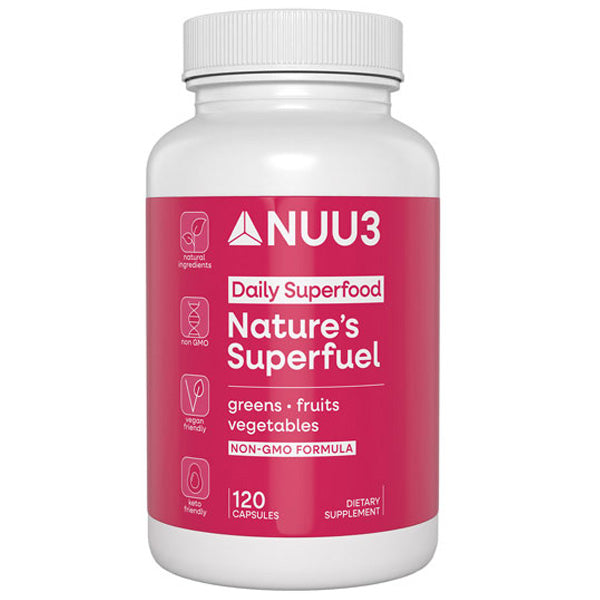Sulfur Burps: Why They Happen & How to Fix Them

Introduction
Sulfur burps are an unpleasant digestive issue characterized by burps that have a distinct, rotten egg odor. This odor comes from hydrogen sulfide, a gas produced in the digestive system when sulfur-containing foods are broken down. While occasional sulfur burps might not be a major concern, persistent or severe instances can indicate underlying digestive problems or food intolerances.
Understanding the causes of sulfur burps is crucial for managing and alleviating them. These burps can be triggered by a variety of factors, including dietary choices, gastrointestinal conditions, and infections. Identifying and addressing the root cause can help reduce the frequency and intensity of sulfur burps, improving overall digestive comfort and health.
In this guide, we’ll explore what sulfur burps are, what might be causing them, and how you can manage or prevent them to maintain better digestive health.
What Are Sulfur Burps?
Sulfur burps are characterized by a foul, rotten egg odor that results from the release of hydrogen sulfide gas during burping. This unpleasant smell is due to the breakdown of sulfur-containing compounds in the digestive system. These compounds are found in various foods and can be released when the body processes them.
The odor is typically a result of an imbalance or inefficiency in the digestive process. For instance, sulfur-containing foods like eggs, garlic, and certain vegetables can contribute to these burps if they are not properly digested. In some cases, sulfur burps can also be linked to gastrointestinal issues, such as infections, food intolerances, or digestive disorders.
One approach to managing sulfur burps is through a detox diet. This type of diet focuses on eliminating processed foods and potentially problematic ingredients, while emphasizing the intake of whole, natural foods. By following a detox diet, individuals can help reduce the amount of sulfur-containing foods in their diet, improve overall digestion, and potentially decrease the frequency of sulfur burps. However, it's essential to consult with a healthcare professional before starting any detox regimen to ensure it's appropriate for your specific health needs.
Common Symptoms Associated with Sulfur Burps
Sulfur burps are characterized by a foul, rotten egg smell caused by the release of hydrogen sulfide gas during burping. This distinctive odor is often accompanied by several other symptoms related to digestive disturbances. Common symptoms associated with sulfur burps include:
-
Bloating and Excess Gas: A common issue where the abdomen feels swollen and distended due to trapped gas. This can be particularly uncomfortable and often accompanies sulfur burps.
-
Abdominal Discomfort: Cramping or general discomfort in the stomach area can occur alongside sulfur burps, potentially due to digestive inefficiencies or irritation.
-
Nausea: An uneasy feeling or queasiness in the stomach, which may be aggravated by the unpleasant odor of sulfur burps.
-
Altered Bowel Movements: Changes in stool patterns, such as diarrhea or constipation, might be present, reflecting underlying digestive issues.
-
Gas Pain in the Chest: Occasionally, the accumulation of gas can cause discomfort that extends to the chest area, leading to a sensation of pain or tightness. This can be unsettling and is often mistaken for other conditions if not properly identified as related to digestive issues.
Causes of Sulfur Burps
Sulfur burps are often a sign of underlying digestive issues and can be triggered by several factors. Understanding these causes can help in managing and potentially alleviating the symptoms. Here are some common causes of sulfur burps:
Dietary Factors
-
Sulfur-Rich Foods: Foods high in sulfur, such as eggs, garlic, onions, and cruciferous vegetables (e.g., broccoli, Brussels sprouts), can lead to the production of hydrogen sulfide gas during digestion, resulting in sulfur burps.
-
High-Sugar or High-Fat Diets: Diets rich in sugars and unhealthy fats can disrupt digestion and promote the growth of certain bacteria that produce sulfur compounds.
Digestive Disorders
-
Dyspepsia: Also known as indigestion, this condition can cause discomfort and excessive gas, which might include sulfur burps.
-
Gastroesophageal Reflux Disease (GERD): GERD can lead to increased gas and acid reflux, contributing to the occurrence of sulfur burps.
-
Irritable Bowel Syndrome (IBS): IBS can cause various digestive symptoms, including sulfur burps, due to abnormal bowel function and gas production.
Gut Imbalances and Infections
- Gastrointestinal Infections: Infections caused by bacteria such as Helicobacter pylori can disrupt normal digestive processes and lead to sulfur burps.
- Small Intestinal Bacterial Overgrowth (SIBO): An overgrowth of bacteria in the small intestine can produce excessive amounts of gas, including hydrogen sulfide, leading to sulfur burps.
- Imbalance of Gut Flora: An imbalance in the gut microbiome, where harmful bacteria outnumber beneficial ones, can contribute to sulfur burps.
Food Intolerances
-
Lactose Intolerance: Difficulty digesting lactose can lead to gas and bloating, which might include sulfur burps.
-
Fructose Intolerance: Inability to properly digest fructose can cause similar digestive issues and sulfur burps.
Poor Digestive Health
-
Slow Digestion: If food moves too slowly through the digestive tract, it can ferment and produce sulfur-containing gases.
-
Digestive Enzyme Deficiencies: Insufficient production of digestive enzymes can impair food breakdown, leading to increased gas production.
Identifying and addressing the specific cause of sulfur burps is crucial for effective management. Dietary changes, improving digestive health, and consulting with healthcare professionals can help alleviate the discomfort associated with sulfur burps and address any underlying conditions.
How to Diagnose Sulfur Burps
Diagnosing sulfur burps involves identifying the underlying causes and evaluating related symptoms. Here’s a step-by-step approach to diagnosing sulfur burps:
Self-Assessment
-
Symptom Tracking: Keep a detailed record of when sulfur burps occur, including any accompanying symptoms like bloating, gas pain in the chest, or changes in bowel movements. Note any specific foods or meals that seem to trigger the burps.
-
Diet Evaluation: Assess your diet to identify potential sulfur-rich foods or other dietary patterns that could be contributing to sulfur burps. This includes foods like eggs, garlic, and onions, which can produce hydrogen sulfide gas during digestion.
Medical Consultation
-
Healthcare Professional Visit: Schedule an appointment with a healthcare provider to discuss your symptoms and medical history. They can help determine if sulfur burps are related to a more significant health issue.
-
Physical Examination: Your doctor may perform a physical exam to check for signs of digestive distress or other related issues.
Diagnostic Tests
-
Breath Tests: Tests like the hydrogen breath test can help identify if your body is producing excess hydrogen sulfide gas, which is often linked to digestive disorders such as Small Intestinal Bacterial Overgrowth (SIBO).
-
Stool Tests: These tests can identify infections, imbalances in gut bacteria, or other digestive issues that may contribute to sulfur burps.
-
Blood Tests: Blood tests can help detect underlying conditions or deficiencies that might be affecting your digestive health.
Dietary Adjustments
-
Trial of a Gut Healing Diet: Implementing a gut-healing diet can be both diagnostic and therapeutic. This diet focuses on removing potential irritants and incorporating foods that support gut health, such as anti-inflammatory and easily digestible options. Observing how symptoms change with dietary adjustments can provide valuable insights into the underlying causes of sulfur burps.
Follow-Up
-
Monitor Symptoms: Continue to track your symptoms and dietary changes to assess the effectiveness of any interventions. Share this information with your healthcare provider for further evaluation.
-
Adjust Treatments: Based on diagnostic results and symptom tracking, your healthcare provider may recommend additional treatments or lifestyle changes to address the root cause of sulfur burps.
Treatment and Management
Effectively treating and managing sulfur burps involves addressing both the symptoms and underlying causes. Here are some strategies for managing sulfur burps:
Dietary Adjustments
-
Reduce Sulfur-Rich Foods: Limit intake of foods high in sulfur, such as eggs, garlic, onions, and cruciferous vegetables. These foods can contribute to the production of hydrogen sulfide gas in the digestive system. Additionally, incorporating supplements like NUU3 Gut Health 365 may support overall gut function and help manage symptoms associated with sulfur burps.
-
Adopt a Gut-Healing Diet: Following a gut-healing diet can help improve overall digestive health. This diet focuses on eliminating irritants and incorporating gut-friendly foods that support the repair and balance of the digestive system. Foods like leafy greens,
- non-starchy vegetables, and fermented foods can be beneficial.
Lifestyle Modifications
-
Improve Eating Habits: Eating smaller, more frequent meals and chewing food thoroughly can aid digestion and reduce the likelihood of sulfur burps. Avoid eating large meals close to bedtime.
-
Stay Hydrated: Drinking plenty of water can help facilitate digestion and flush out excess gases.
Medical Treatments
-
Medications: Over-the-counter antacids or medications that reduce stomach acid may help if sulfur burps are related to acid reflux or GERD. Consult with a healthcare provider for appropriate options.
-
Treat Underlying Conditions: If sulfur burps are due to a condition like Small Intestinal Bacterial Overgrowth (SIBO) or an infection, targeted treatments such as antibiotics or probiotics may be necessary.
Natural Remedies
-
Probiotics: Adding probiotic-rich foods or supplements to your diet can help balance gut bacteria and improve digestion. Consider incorporating NUU3 Super Greens into your routine, as it contains beneficial ingredients that support gut health and enhance overall digestive function.
-
Herbal Teas: Herbal teas such as ginger or peppermint can soothe the digestive system and reduce gas production.
Monitoring and Follow-Up
-
Track Symptoms: Keep a record of any changes in your symptoms with dietary or lifestyle adjustments. This can help you and your healthcare provider assess the effectiveness of the treatment plan.
-
Consult Healthcare Professionals: Regular check-ups with a healthcare provider can ensure that any underlying conditions are being properly managed and that your treatment plan remains effective.
Preventing Sulfur Burps
Preventing sulfur burps involves adopting healthy eating habits and maintaining overall digestive health. By implementing these strategies, you can minimize the production of hydrogen sulfide gas and improve your digestive comfort. Here’s how:
Adopt a Balanced Diet: Incorporate a variety of non-sulfurous vegetables, lean proteins, whole grains, and fruits into your meals. A balanced diet supports healthy digestion and reduces the risk of sulfur burps
Practice Portion Control: Eating smaller, more frequent meals rather than large ones can help ease the digestive process and prevent the buildup of gas that leads to sulfur burps.
Chew Food Thoroughly: Properly chewing your food aids in digestion and helps reduce the amount of air swallowed, which can contribute to gas and burping.
Stay Hydrated: Drinking plenty of water throughout the day supports healthy digestion and helps flush out excess gases. Proper hydration is key to a well-functioning digestive system.
Manage Stress: Stress can negatively impact digestion and contribute to gastrointestinal issues. Engage in stress-relief activities such as yoga, meditation, or deep-breathing exercises to support a healthy digestive system. Additionally, consider incorporating NUU3 Keep Calm Gummies into your routine. These gummies are designed to help manage stress and promote relaxation, which can further support overall digestive health and reduce the likelihood of stress-related symptoms.
Avoid Carbonated Beverages: Limit your consumption of carbonated drinks, which can increase gas production and lead to more frequent burping. Opt for non-carbonated beverages to help manage gas levels.
Takeaway
Sulfur burps, while often unpleasant, can be managed effectively through thoughtful dietary and lifestyle adjustments. If symptoms persist, consulting with a healthcare professional is recommended to address any underlying issues and ensure effective management.













